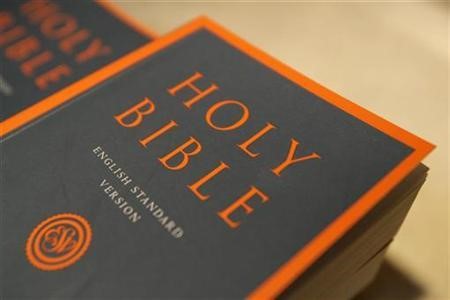Unicorns exist according to the Bible, expert claims

Unicorns exist, and the Bible proves that they are not just mythical creatures found in fiction.
This was the position taken by Answers in Genesis, a creationist apologetics ministry that helps Christians defend their faith effectively,
In a post by Dr. Elizabeth Mitchell on the group's website, she cited several Bible verses referring to the existence of the unicorn as a common animal like lambs, peacocks and lions (Job 39:12). She said that the passages refer to a single horned creature skipping like calves (Psalm 29:6), travelling like bullocks and bleeding when they die (Isaiah 24:7).
"The unicorn mentioned in the Bible was a powerful animal possessing one or two strong horns—not the fantasy animal that has been popularised in movies and books. Whatever it was, it is now likely extinct like many other animals. To think of the biblical unicorn as a fantasy animal is to demean God's Word, which is true in every detail."
Mitchell said that the existence of this magnificent creature is proof of God's greatness and it would not have been referenced in the Bible if it did not actually exist in the past.
She further explained that men should not be surprised if there are no more unicorns now as extinction is a natural occurrence.
"The absence of a unicorn in the modern world should not cause us to doubt its past existence. (Think of the dodo bird. It does not exist today, but we do not doubt that it existed in the past.)," she wrote.
She also cited rock drawings and eyewitness accounts of "fierce, single-horned, equine-like animals." In Edward Robinson's Calmet's Dictionary of the Holy Bible , there is a reference to "a single horn, directly in front, about as long as one's arm, and at the base about as thick. . . . [It] had a sharp point; it was not attached to the bone of the forehead, but fixed only in the skin.
Mitchell explained that the unicorn's identity may cause some confusion as the text could not conclusively say how many horns the animal had as the King James version only referred to them as "wild ox". Luther's German Bible referred to the creatures as the Septuagint while the Latin Vulgate cited a "one-horned animal."











